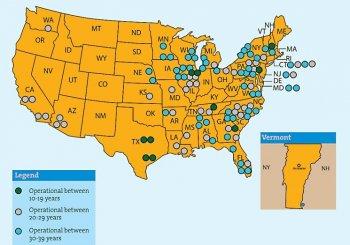Texas A&M University systems recently established a rule that allows the university to punish or even fire journalism instructors who encourage their students to file open records requests with the university.
Several journalism organizations including the Associated Press (AP) and the National Press Foundation have strongly protested the policy in a letter to university officials.
The letter claims that the law is “probably illegal and represents an authorized limitation” on Texas’s Public Information Act, which gives any citizen the right to request public records in order to “complete information at all times about the affairs of government.”
The restriction came after a public records request from students in Pulitzer Prize winner Dan Malone’s class who uncovered problems in crime reporting in one of the university’s institutions, Tarleton State.
“It seems no coincidence that the system’s new policy interpretation follows closely on the heels of stories developed by the students of journalism instructor Dan Malone that uncovered problems in crime reporting on the Tarleton State campus and that inquired into the reasons for cancellation of a highly controversial student play,” said the letter.
The university’s spokesman, Ron Davis, told AP that the policy “does not prevent (students) from getting public information. … It specified in a very, very narrowly drawn manner (the) way they can do so. It absolutely does not inhibit their ability to find the information,” he said.
The recent rule is an extension of a previous one that forbade university employees to request information from their employers after an employee made what university officials deemed to be repeated, trivial requests for information.
“It is unconscionable that a public university would seek to use bad and potentially illegal policies in order to squelch investigations by its own students, who appear to have performed a valuable public service in holding our government accountable to its citizens,” says the letter of outcry.
University officials say that they are revisiting the rule after receiving such public protest, reported the Houston Chronicle.
“Andrew Strong, A&M’s general counsel, said Wednesday he wasn’t aware of all of the facts when he crafted a letter that extended existing rules, which ban employees from abusing the Public Information Act, to include journalism students working on optional class assignments,” reported San Antonio Express-New.
“[The law is] not intended in any way to inhibit the ability of any journalism professor to teach about the Public Information Act,” said Strong.
Several journalism organizations including the Associated Press (AP) and the National Press Foundation have strongly protested the policy in a letter to university officials.
The letter claims that the law is “probably illegal and represents an authorized limitation” on Texas’s Public Information Act, which gives any citizen the right to request public records in order to “complete information at all times about the affairs of government.”
The restriction came after a public records request from students in Pulitzer Prize winner Dan Malone’s class who uncovered problems in crime reporting in one of the university’s institutions, Tarleton State.
“It seems no coincidence that the system’s new policy interpretation follows closely on the heels of stories developed by the students of journalism instructor Dan Malone that uncovered problems in crime reporting on the Tarleton State campus and that inquired into the reasons for cancellation of a highly controversial student play,” said the letter.
The university’s spokesman, Ron Davis, told AP that the policy “does not prevent (students) from getting public information. … It specified in a very, very narrowly drawn manner (the) way they can do so. It absolutely does not inhibit their ability to find the information,” he said.
The recent rule is an extension of a previous one that forbade university employees to request information from their employers after an employee made what university officials deemed to be repeated, trivial requests for information.
“It is unconscionable that a public university would seek to use bad and potentially illegal policies in order to squelch investigations by its own students, who appear to have performed a valuable public service in holding our government accountable to its citizens,” says the letter of outcry.
University officials say that they are revisiting the rule after receiving such public protest, reported the Houston Chronicle.
“Andrew Strong, A&M’s general counsel, said Wednesday he wasn’t aware of all of the facts when he crafted a letter that extended existing rules, which ban employees from abusing the Public Information Act, to include journalism students working on optional class assignments,” reported San Antonio Express-New.
“[The law is] not intended in any way to inhibit the ability of any journalism professor to teach about the Public Information Act,” said Strong.

